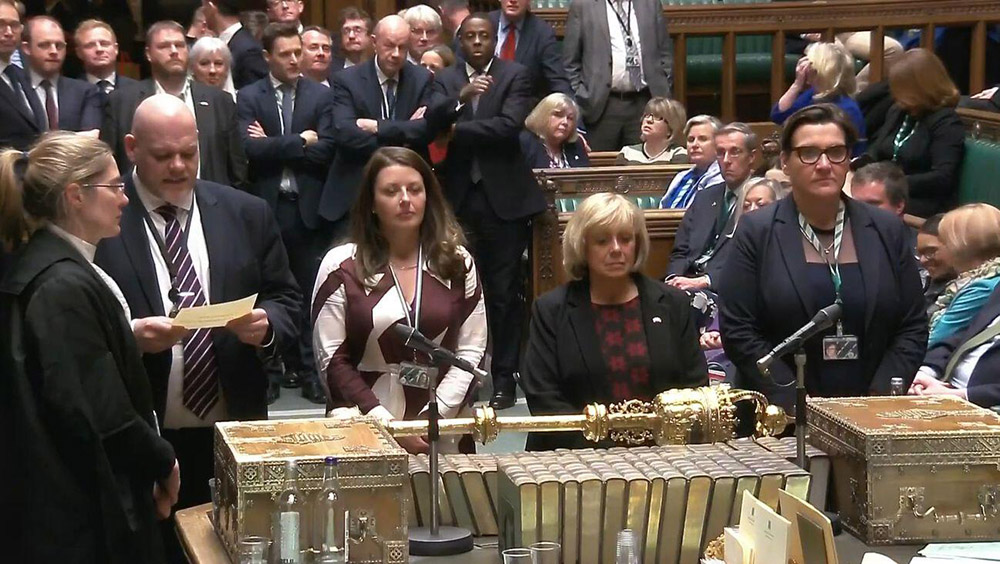Don’t Rush To Pass Bills And Make More Shoddy Laws, Labour Warned
7 min read
As the new Labour Government prepares to launch its legislative agenda, a leading left-leaning think tank is warning ministers to slow down passing new bills or risk putting more bad laws on the statute book.
The Institute for Public Policy Research (IPPR) said recent Tory administrations “failed to fulfil promises of democratic renewal following Brexit” and instead “centralised power and reduced parliamentary scrutiny”. This, the think tank said, led to legislation that had to be amended, abandoned or simply failed to deliver what it promised.
In a new report published this weekend, the IPPR advises Prime Minister Keir Starmer and his ministers to “be the Tortoise to the last government’s Hare” on passing bills, and called on them to use its new Modernisation Committee to reform law-making for all future policy.
Its authors are highly critical of the approach in the last Parliament, which they said saw laws passed with “limited or no public consultation” and with little time for scrutiny by MPs, evidenced by the fact the House of Commons sat “for significantly fewer days per session and for fewer hours per day on average than in previous decades”.
As a result, they said that “major pieces of legislation in the last Parliament failed to meet their intended goals and caused harm while doing so”, and required fixes or U-turns.
They added: “This approach to law-making is a tremendous waste of parliamentary time and resources at best and littered with harmful side-effects at worst.”
The report, entitled 'Delivery vs Deliberation', shared exclusively with PoliticsHome, suggests these new laws "frequently undermined the quality of democracy”, and that the last government “regularly strained constitutional norms” and clashed with international law.
As a result of poor processes, Parliament became heavily reliant on the House of Lords to scrutinise legislation as MPs were denied that opportunity in the Commons, the report says.
Dr Parth Patel, principal research fellow at IPPR and co-author of the report, said: “The way in which we are supposed to make collective decisions was treated with contempt by the previous government, leading to ineffective and illegitimate laws.
“It is one reason behind the growing number of people in this country who sense that have no capacity to shape the laws they live under.”
The IPPR accused the last Tory government of a “willingness to introduce legislation that failed to give due regard to international law”, citing the Illegal Migration Act — which risks breaches of the Refugee Convention, the European Convention Against Trafficking, and the UN Convention on the Rights of the Child.
The reports says it was subject to limited consultation, fast-tracked through Parliament, and yet the main duty in the Act was never brought into force. It also highlights former Northern Ireland secretary Brandon Lewis notoriously describing the Internal Market bill as breaching international law in “a very specific and limited way”.
The use of delegated or secondary legislation in recent years, which is usually unamendable and comes with little opportunity for scrutiny, is described as “excessive”. The report also criticises the number of so-called ‘skeleton bills’ passed by government, which contain broad principles rather than detail, and then allow ministers to policy through delegated legislation down the line.
The report says: “Over this period, the promise of ‘taking back control’ was therefore replaced by a tendency towards power-hoarding by government, reducing the ability of parliament to scrutinise, amend and shape legislation, disregarding civil society stakeholders, challenging the careful balance of the devolution settlement, and riding roughshod over the UK’s international legal commitments.”
 Commons leader Lucy Powell has set up a new modernisation committee (Alamy)
Commons leader Lucy Powell has set up a new modernisation committee (Alamy)
Its authors urge Starmer's Government to take “a different approach to law-making”, move away from “sticking plaster”, and create bills that are effective, robust and enduring.
Their research argues there should be a shift to a more inclusive approach, with better public consultation or citizens juries, which could “open up the democratic process to the wider public, giving more people outside of Parliament a chance to actively contribute in a different way to the legislative process”.
They also argue for more pre-legislative scrutiny, timely publishing of impact assessments, more time for public bill committees to consider evidence and engage with stakeholders, and more time for MPs to properly interrogate legislation before voting on it, and the creation of a new committee to examine the rule of law implications of new government bills.
“The new Government has the opportunity to not repeat the same mistakes – they should be the Tortoise to the last government’s Hare,” Patel said.
“More deliberation and more democracy will make better legislation and have a more meaningful impact on people's lives.”
Another of the report’s co-authors, Marley Morris, associate director at IPPR, suggests the Government’s new Modernisation Committee could be tasked with developing these reforms, including developing a memorandum of understanding with the Government on clear criteria for the use of delegated legislation or so-called “Henry VIII powers”, which allow an amendment to existing law to be done via the secondary legislation process.
He told PoliticsHome: “With a new Parliament, a new Government, there's an opportunity just to make sure that you have real scrutiny over legislation, because we think that will improve the quality of legislation, aside from being the right thing to do within and of itself.”
The new committee was set up by House of Commons leader Lucy Powell, and follows on from similar committees established by the Labour administrations in the 1997, 2001, and 2005 Parliaments.
The Conservatives chose not to have one in the years since, but Labour’s manifesto for the July General Election promised to bring it back, and said it is “tasked with reforming House of Commons procedures, driving up standards, and improving working practices”.
 The report cites immigration bills passed in the last Parliament as examples of bad legislation (Alamy)
The report cites immigration bills passed in the last Parliament as examples of bad legislation (Alamy)
It has 14 members from across the political spectrum, although the majority of MPs are from Labour, and establishing its creation the Government also said it would “consider how time and resources in the Commons are best utilised” so legislation can be better scrutinised.
There have been suggestions, however, that given Labour’s massive majority and desire to press on with its agenda such worthy reforms may fall by the wayside.
But Morris said it would be a worthwhile process for the new administration to take.
"Like any government with a big majority, there's likely to be a temptation to to be able to use that majority to to get legislation through, and obviously they want to do that,” he said.
“But there's a really strong case that we've tried to make, that doing it in a way that ensures clear and careful scrutiny, there are clear benefits in a number of ways.”
Morris said most obviously “you get better bills by doing it”, but it will also help legislation pass more smoothly through the House of Lords, where the government does not enjoy a majority, and it will benefit future parliaments too by setting the standards “for what counts as properly scrutinised, well-developed legislation”.
Dr Ruth Fox, director of the Hansard Society, which scrutinises how Parliament operates, said reforms to legislation are much needed, but that must “address the incentives” which might persuade ministers to do so.
She told PoliticsHome the IPPR report “provides a useful overview of some of the most significant issues that plagued the legislative process in the last Parliament”, but said those challenges aren't new.
“Over the past 25 years, governments of all political stripes — Labour, Conservative, and the coalition — have adopted poor policy-making and consultation processes, rushed Bills through Parliament, taken sweeping powers, and sidelined parliamentary scrutiny,” Fox added.
“If the legislative process is to be improved any reforms have to address the incentives that might persuade this and future governments to adopt a different approach."
